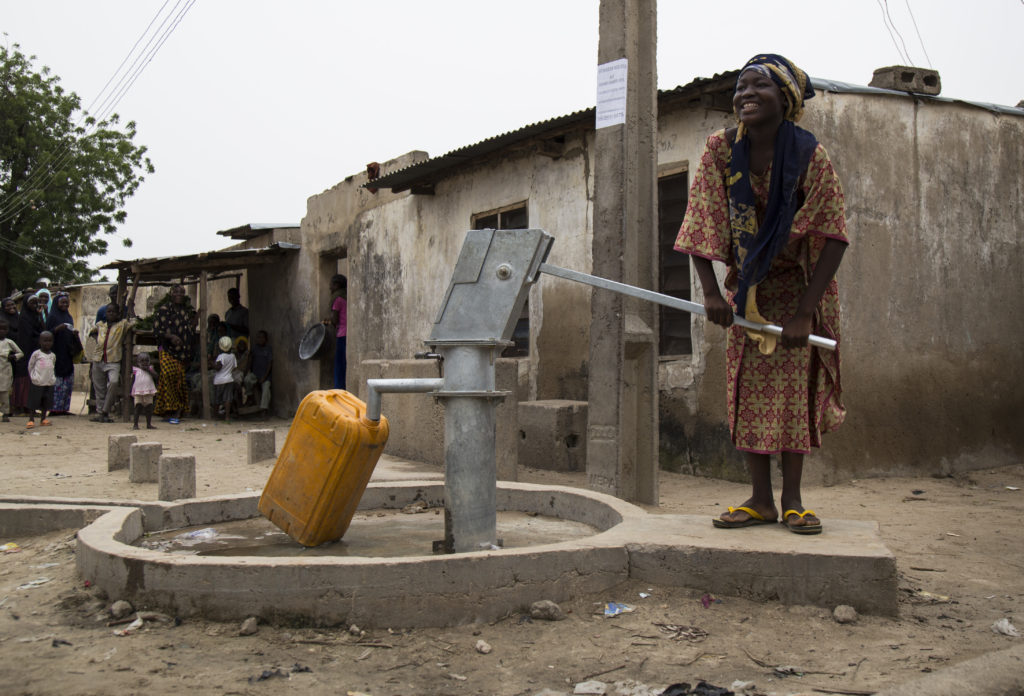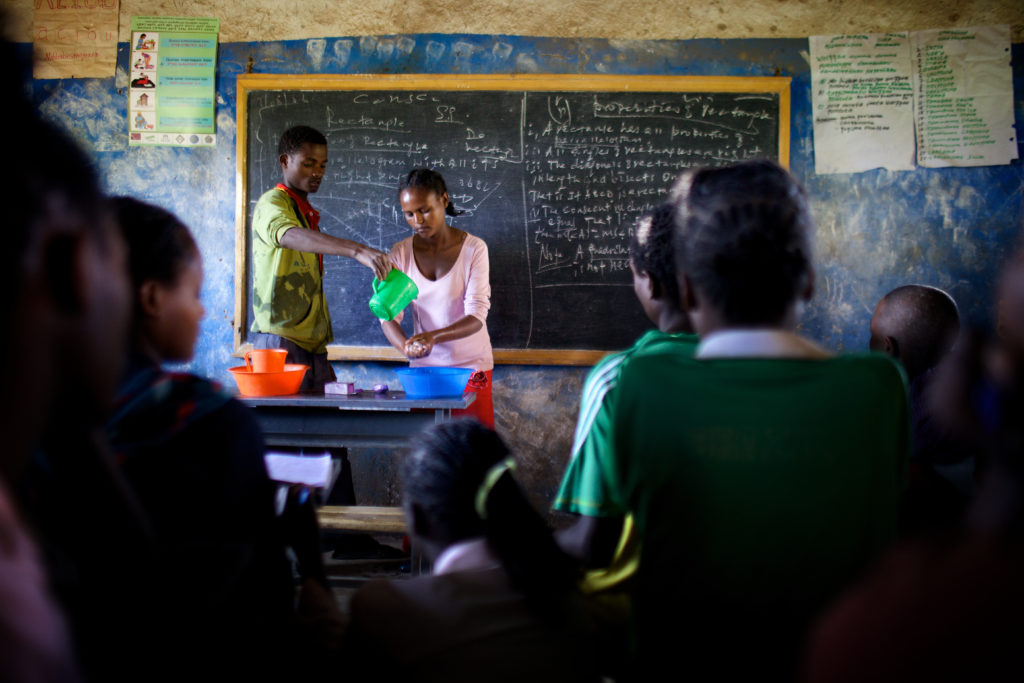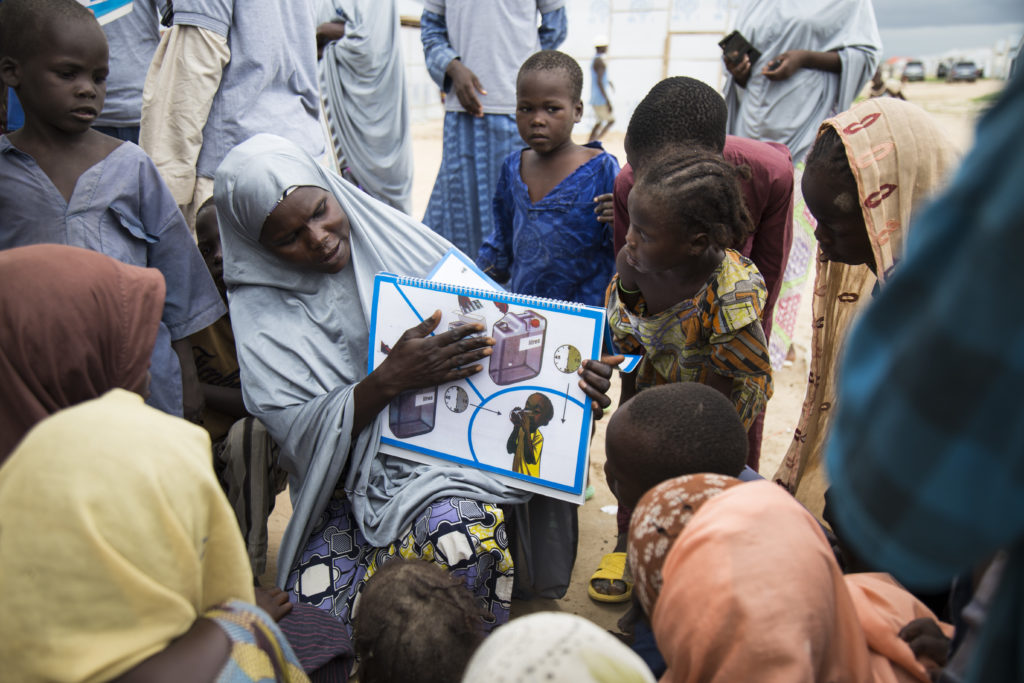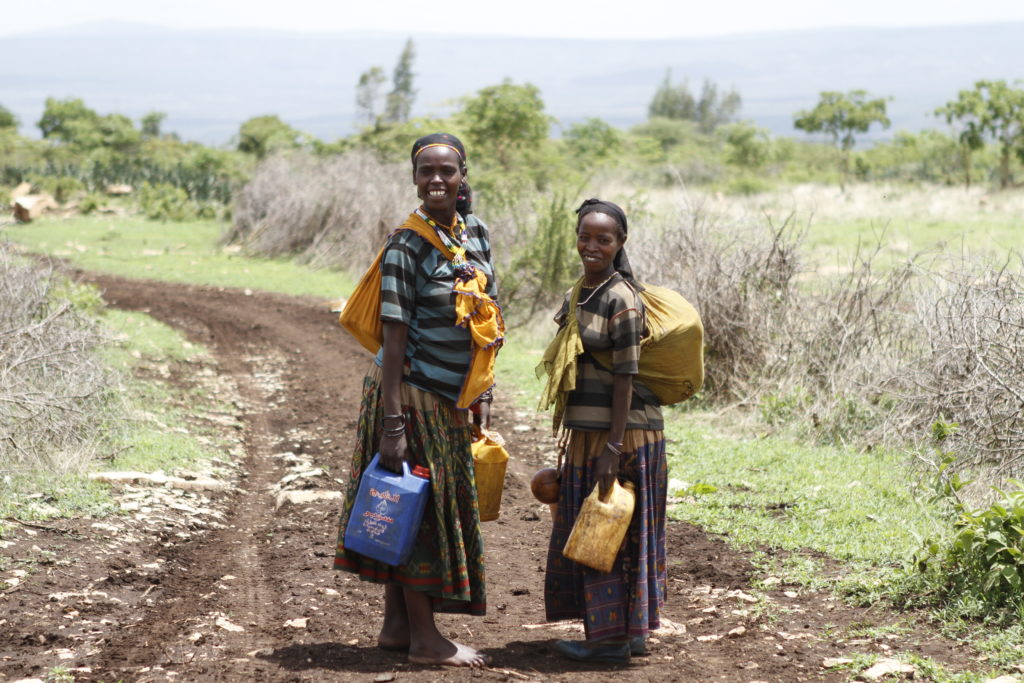Imagine having to wait all day to defecate in the dark, just to get the tiniest semblance of privacy—and then getting raped because you went outside alone at night.
Imagine carrying a 10-gallon jerry can of water on your head and walking three miles in the blistering heat to bring it home for your domestic chores—just to do it all over again the next day, and the next, and the next.
Imagine being ridiculed and shamed for having your period—an entirely natural bodily function essential to the survival of our species—and being forced to miss school for nearly a week every month because of it.
For literally billions of people around the world, this is the reality. In our technologically advanced age, with space travel and instantaneous global communications, among other wonders, 2.3 billion people still lack adequate latrines and sanitation facilities. And while a kale smoothie costs $9 in Los Angeles, 1.8 billion people around the world cannot access safe cleaning water. But even worse, a closer look at these shocking numbers reveals disconcerting gender inequities and injustices.
In developing countries, the responsibility of fetching water falls disproportionally on women and girls, who spend up to five hours walking an average of three-and-a-half miles every day to collect water. This is more than a chore. For girls, this means missing school and falling behind in their education—which will leave them trying to catch up for the rest of their lives. For women, this means missing income-generating activities that could help them gain financial freedom and political power.

For both women and girls, this daily, arduous task of fetching water exposes them to sexual and other forms of violence. They may be forced to navigate insecure environments to access water, experience fighting in water queues due to water scarcity or face abuse at home for failing to fetch enough water. Women are also more likely to be exposed to water-borne illnesses when clean water is unavailable, due to their domestic responsibilities, such as caring for children’s hygiene, and growing and cleaning food. And where water resources are scarce, women may be exploited by those who control these limited resources for sexual favors.
A lack of sanitation facilities also contributes to women’s vulnerability to violence and unequal access to education. When forced to travel far from home and/or wait until dark to defecate in unsafe locations, women and girls may experience harassment and sexual abuse. In addition, many school sanitation facilities do not provide adequate privacy for girls, causing them to miss school during their periods—which leaves them further behind their male peers.

It’s generally known that gender equality in much of the developing world remains a massive challenge. It’s not as widely known that access to basic sanitation and safe water plays a significant role in promoting gender equality. For this reason, International Medical Corps prioritizes the unique needs and concerns of women and girls in our water, sanitation and hygiene (WASH) activities. We provide WASH services across a range of settings—including underserved communities, refugee and displacement camps, health facilities and schools—while actively engaging communities and local leaders in the development and implementation of sustainable WASH interventions. “In all of our WASH activities, we work to ensure that women’s voices are heard and their needs are catered to with dignity,” says International Medical Corps’ Global WASH Advisor, Syed Yasir Ahmad.
Fatima Mustapha knows firsthand how essential WASH programs can be. A 22-year-old mother, Fatima was forced to flee her home in northeast Nigeria after Boko Haram militants burned down her village and house. She traveled by foot, with only her six-month-old son on her back, for nearly 115 miles over five days until she reached Maiduguri, where for a week she lived on the streets with her son, begging for food, water and shelter. Eventually, she found herself in Gubio Camp, along with other displaced Nigerians.
Fatima has no idea if her husband, Mallan, survived the attack. She has no family or relations nearby. In the absence of sanitation services and information on proper hygiene, she and others in the camp practiced open defecation and drank dirty water, contributing to poor health and the spread of diseases—until International Medical Corps began running WASH programs in the camp.
We rehabilitated latrines and improved their maintenance, including proper management of solid waste. We began water testing and treatment training, and distributed aqua tabs, hygiene kits, jerry cans and sanitary materials while training volunteers to promote proper hygiene practices. Rates of open defecation plummeted, while water quality improved dramatically.
As a single mother caring for her young son in highly uncertain conditions, Fatima feels grateful that she at least feels safe when she uses the latrines in the camp. She also is grateful that she does not have to travel far to access clean water. Her and her son’s health has improved since they learned proper handwashing and food cleaning practices, and she feels happy when she sees the International Medical Corps staff and volunteers in the camp. Though she has not yet located her husband and does not know when she can return home, she does not have to worry about her most basic needs being met—and, with those burdens lifted, she can focus on rebuilding her life and providing a future for her son.
As a humanitarian relief organization, we cannot stop tragedy or disasters from occurring. But we can help women like Fatima avoid the compounded misfortune of unclean drinking water, or the risk of shame and sexual violence during defecation and menstruation. We can help women like Fatima make sure that their kids grow up knowing how to properly wash their hands and stay healthy. And we can help young girls stay in school and build their dreams rather than spending their days fetching water or hiding at home during menstruation.

Access to clean, safe drinking water and proper sanitation facilities is a universal human right and an urgent global imperative. And to reach gender equality in the developing world, we must add water—along with toilets and soap.
